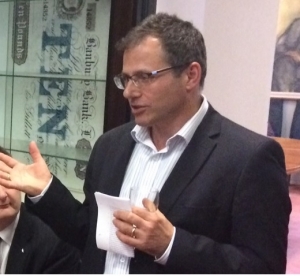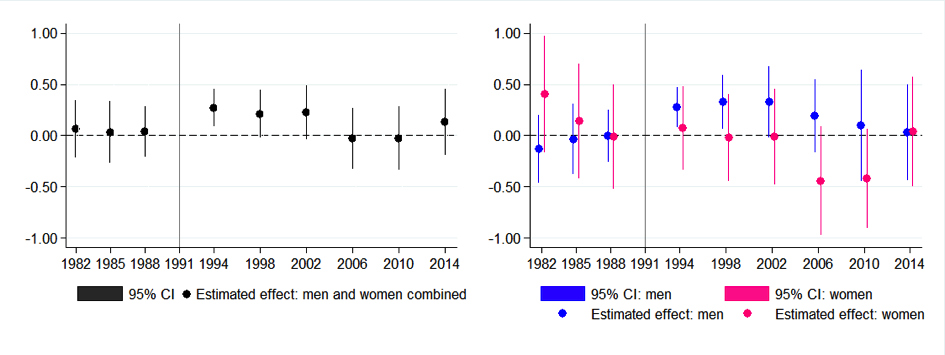In a recent interview Adam Sandelson, the head of Student Wellbeing and member of Student Diversity and Support Working Group of EDI, speaks about his time at LSE, involvement with the Student Wellbeing services and the recent Peer Support Scheme that is being launched.
I’m now in my 5th year of heading up Student Wellbeing. We talked for years about the dream of bringing together previously disparate areas of counselling, disability and mental health, and it’s been my good fortune to be able to bring this to fruition through the relatively new Student Wellbeing Service. In January DWS (Disability and Wellbeing Service) moved into brand new accommodation in Tower 3, and this summer we will also be bringing over the Student Counselling Service and Mental Health Advisers. At last we will have the whole of SWS working together in a single student-facing service, and this will give us a great base to work from with students all across the School.
to bring this to fruition through the relatively new Student Wellbeing Service. In January DWS (Disability and Wellbeing Service) moved into brand new accommodation in Tower 3, and this summer we will also be bringing over the Student Counselling Service and Mental Health Advisers. At last we will have the whole of SWS working together in a single student-facing service, and this will give us a great base to work from with students all across the School.
Outside of work, as well as having two grown up daughters (both students), we have two cats (4 ½ at its apogee). I love being in Hackney, where I’ve lived for 20 years and can cycle in to work. I also love tennis, and I was able to get a £10 standing ticket for the greatest ever Men’s Final at Wimbledon – the Borg-McEnroe match of 1980 (McEnroe survived 5 match points in an 18 – 16 tie break, but then lost in the 5th).
You are Head of Student Wellbeing. How did you come to LSE, and why does the HE environment appeal to you?
I started here in 2002, and had been trying for years to journey into HE from the NHS. I imagined I would find a collegiate atmosphere of co-operation within the sector, which seemed preferable to the prevailing competition between NHS Trusts. Since I’ve been here, I’ve loved the connections across universities; they have been a brilliant part of learning, and the various networks offer endless opportunities for collaboration and an invaluable sense of shared affiliation. I still love working at LSE, and I’m not the first to cite the buzz about the place, driven by the diversity and character of so many amazing students, as well as loads of really bright and highly-motivated staff.
What are the main priorities for the Student Wellbeing, particularly in the run-up to the exam period?
On the disability side we are working to make sure we get in applications from disabled students needing Individual Examination Adjustments (IEAs) by the 24 March deadline. As well as working to meet the needs of individual students, we are also working with others to help create a more inclusive learning environment. The counselling service is also really busy seeing students, who can feel under a lot of pressure as we head towards the end of term. We offer short term counselling, and see large numbers of students in daily drop in sessions – these can be really helpful for getting immediate support on a whole range of issues. We make sure we prioritise students who are having more severe and urgent difficulties; this is always a key element of our work.
You oversee the Peer Support Scheme; what does this involve and how is the scheme beneficial to students?
On Monday we held the graduation ceremony for our sixth cohort of peer supporters, and this year we trained over 30 students in peer support skills through our own 30 hour training course. They have been a great source of emotional support and encouragement to students throughout the School, and have done a terrific job. Many students prefer to talk to someone with whom they can identify, and the peer supporters work really hard to be accessible and friendly. Most of the peer supporters have been based in the halls of residence, but whether working there or in the campus, they run a number of events helping to bring students together. Sometimes these are linked to themes relating to a mental health campaign, but through their work they help to promote a sense of connection and community, and social cohesiveness is a really important element of student mental health and wellbeing.
We are looking for new peer supporters for 2017-18 now, and if anyone is interested see or talk to one of the current peer supporters.
What advice can you offer to students in order for them to remain productive and calm at this time?
There are several elements here. Anxiety and study-related stress can often benefit from good self-help techniques, and we carry many of these on our website. Exercise, for example, is really important – even just walking round Lincoln Inn Fields for half an hour can help with concentration and confidence. The counsellors and Mental Health Advisers are really good at advising with sleep difficulties, as this can also get in the way of good mental health. Many students find mindfulness helpful, and the website shows this as well as specific approaches to help deal with perfectionism and writing difficulties. Finally, most students can still find ways to be imaginative and creative in their work, despite the pervasive feeling of never being good enough at LSE!
Linked to this, there are some great materials on the LSE Life website on thinking about thinking, as well as managing exam stress. Ohemaa Nkansa-Dwamena will also be running a session soon on looking after yourself while you revise for exams – also bookable via LSE Life.
If you could be a comic superhero, who would you choose, and why?
A difficult one, because I am not up-to-date with my superheroes. I vaguely remember reading a comic featuring a character called Green Lantern, but short of googling it, I have no idea what they were about.
What is your biggest personal achievement of the last year?
Getting our accommodation sorted out – I’m so grateful to the Estates Division, as well as the Director and SMC, for giving us the chance to create a vibrant new centre for our work with students. I can’t wait for the summer when we can finally open a single SWS, after having been dissipated for many years. We will owe a lot of people a lot of thanks, and the new more accessible location will help us reach out to many more students.
What is your idea of food hell, and why?
Profiteroles! I ate too many when I was 10.
——————————————————————————————————————————————————
Note:
- This interview first appeared in the ’60 seconds…’ feature of the Student News and Staff News and is being republished with relevant permissions.
- Image shared by Adam Sandelson.





